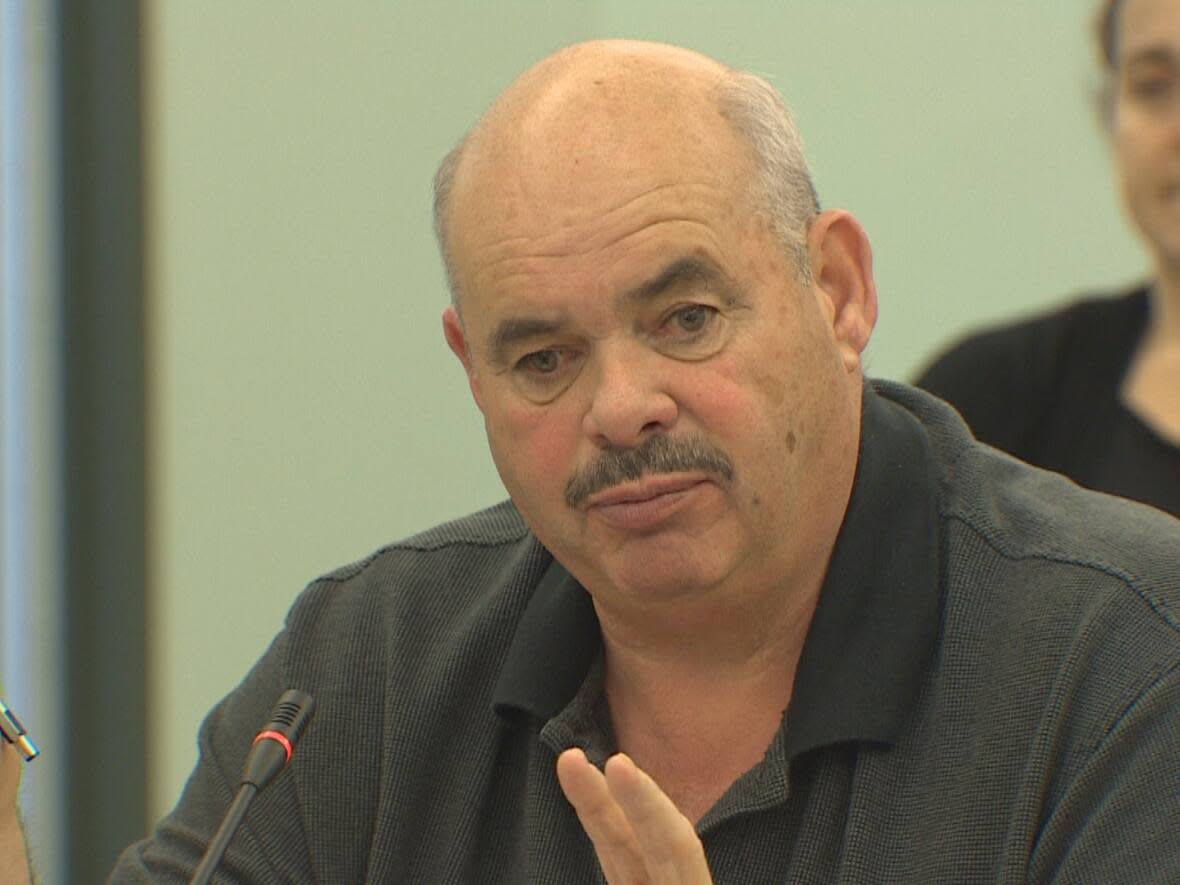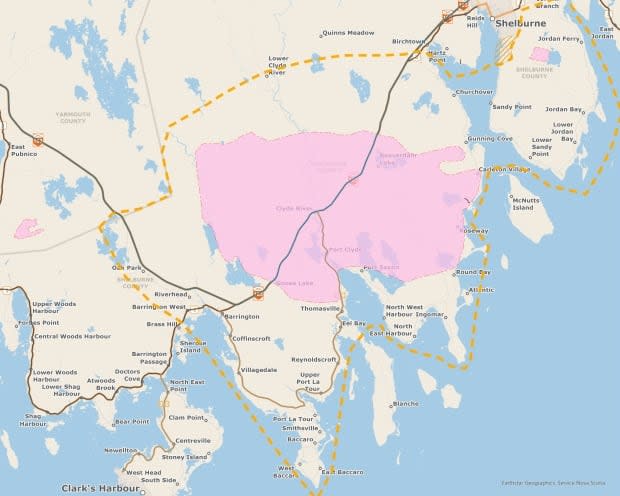Southwest Nova Scotia seafood industry on edge as wildfires surge

As many as 20 seafood processing and holding facilities along Nova Scotia's South Shore could be at risk because they fall within the wildfire evacuation order areas in Shelburne County, a scenario one industry veteran says would be economically devastating for the region.
"When you've got a lot of inventory — millions of dollars — it's critical and a significant concern to our members who have these facilities," Osborne Burke, president of the Nova Scotia Seafood Alliance, said in an interview.
"You take any one of these operations out of a small community and it's the heart of the community."
Burke said between 15 and 20 of the alliance's members are affected by evacuation orders. Some of the facilities have generators that kick in automatically when the power goes out, while others require a switch to be manually activated.
Relying on generators to maintain operations and preserve live lobster in holding tanks presents its own set of challenges, Nova Scotia Fisheries Minister Steve Craig told reporters on Thursday, because someone has to get fuel to those generators to keep the plants operating.
"Nobody wants to see a fuel truck trying to go through areas that are on fire," he said.
The minister said his department is working with Natural Resources Department officials to get help to affected sites when and where it is safe and they're also in talks with federal officials about potential support should things take a turn for the worse. Craig is scheduled to meet with his federal counterpart Friday morning.
Federal Fisheries Minister Joyce Murray announced the season for lobster fishing area 33 would be extended to midnight on Tuesday to give people more time to haul up their gear while trying to contend with the fires. Some fishermen are doing double duty, as they also work as volunteer firefighters. Neighbouring lobster fishing area 34 will close at midnight on Friday.
Craig said he recalls thinking about what would have happened to the region if the industry felt the brunt of post-tropical storm Fiona when it passed through Nova Scotia last fall.
"I was thinking about how would you get boats out of the water and onto the land. I never thought we would look at how do you get boats off of the land and into the water, and that's the situation we have now," he said.
"It's extremely serious and the ramifications of this could be very, very, very high, not only for today but for tomorrow and perhaps years to come."
Burke said people he's talking to are experiencing "extreme stress" as they worry about the future of their facilities and lose valuable orders for live lobster because trucks either cannot get from sites in Shelburne County to the airport or because there are not people available to load and offload trucks.

Victoria Fisheries Co-op in Neils Harbour, Cape Breton, where Burke is general manager, had to cancel a recent order for 400 crates of lobster because the customer in Shelburne didn't have people to offload the delivery. Burke said such examples show the impact of the wildfires reaches across the industry from one end of the province to the other.
Adding further stress Thursday was word from emergency management officials that people in the Municipality of Barrington and Town of Clark's Harbour need to be ready for evacuation orders.
While that advice is intended to give people time to prepare should the situation reach the point where evacuation is necessary, Burke said having fire spread to an area that is one of the lobster industry's cornerstones would be a significant setback for the province and have a long-term impact for the sector and communities.
"To what extent, I don't know and I hope to hell we're both wrong and things get under control."
MORE TOP STORIES


